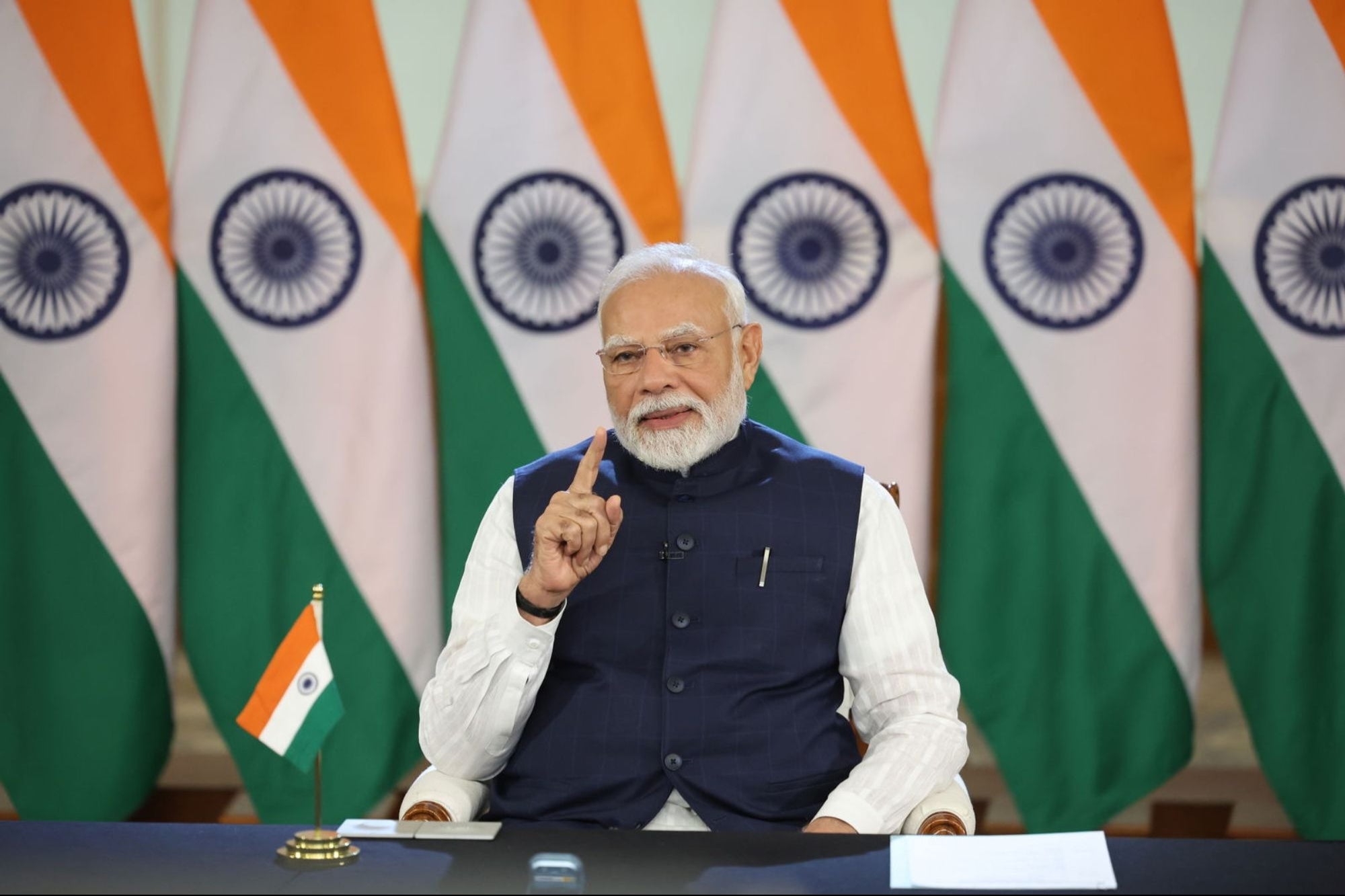Cabinet Approves ₹1 Lakh Crore RDI Scheme to Power Sunrise Sectors, India Still Trails Globally According to a state press release, key objectives of the scheme will include encouraging the private sector to scale up research, development, and innovation (RDI) in "sunrise domains" and other sectors relevant for economic security, strategic purpose, and self-reliance.
Opinions expressed by BIZ Experiences contributors are their own.
You're reading BIZ Experiences India, an international franchise of BIZ Experiences Media.

India's Union Cabinet, chaired by Prime Minister Narendra Modi, has approved the Research Development and Innovation (RDI) Scheme last Tuesday, which comes with a corpus of INR 1 lakh crore (~USD 12 billion).
The Prime Minister said, "This scheme, with a corpus of INR 1 lakh crore, will have a major impact on emerging and sunrise sectors," indicating that the funds will be used for sectors that are nascent and upcoming within the country's ecosystem.
Today's Cabinet decision relating to Research Development and Innovation (RDI) Scheme will be a game changer in the world of research and innovation. This scheme, with a corpus of Rs. 1 lakh crore will have a major impact on emerging and sunrise sectors. It will also boost…
— Narendra Modi (@narendramodi) July 1, 2025
According to a state press release, key objectives of the scheme will include encouraging the private sector to scale up research, development, and innovation (RDI) in "sunrise domains" and other sectors relevant for economic security, strategic purpose, and self-reliance.
The release also stated other objectives, such as financing transformative projects at higher levels of Technology Readiness Levels (TRL), supporting the acquisition of technologies that are critical or of high strategic importance, and facilitating the setting up of a "Deep-Tech Fund of Funds."
"This is a much-awaited and welcome move. Between 2019 and 2023, deep-tech startups in India attracted approximately USD 10 billion in funding, which accounts for only 5 per cent of India's total startup funding, significantly lower when compared to leading countries where ~35 per cent of capital is going to deep-tech," said Anjali Bansal, Founding Partner, Avaana Capital.
Historically however, India's R&D spending has been low in comparison to other contemporarily competing economies. As per a UNESCO Science report 2021, India only spent 0.64 per cent of its GDP on R&D, whereas the likes of the US and Israel, who spent 3.42 and 5.35 per cent respectively in the period of study.
Indian R&D spending has remained well below the global average of ~1.8–1.9 per cent and substantially lower than other R&D-intensive nations such as China.
Total R&D funding globally reached approximately USD 2.75 trillion in 2023, with India spending just USD 71 billion. In comparison, the US spent USD 784 billion, which is 3.42 per cent of its GDP, and China stood at USD 723 billion, close to 2.4 per cent of its GDP.
India's spending split was approximately 64 per cent public and 36 per cent private, according to PRS Legislative Research.
Earlier this year, an ET report citing government sources said that the Ministry of Defence is reportedly working on a new proposal that will significantly increase its R&D expenditure, up from INR 27,000 crore to INR 40,000 by 2026, with plans to further increase the spend anywhere around INR 70,000-80,000 crore by 2030.
Vishesh Rajaram, Managing Partner, Speciale Invest, who feels positive about the step taken by the government, said, "The launch of the RDI Scheme is a landmark step in catalyzing India's journey toward technology self-reliance. Focused support for sunrise sectors like space, semiconductors, quantum, defence, and energy sends a strong signal that India is not just participating in the global deep-tech race, we're shaping it."
The Governing Board of Anusandhan National Research Foundation (ANRF), chaired by the Prime Minister, is said to provide strategic direction to the RDI Scheme. The Executive Council (EC) of ANRF is appointed to approve the scheme's guidelines, and recommend "2nd level fund managers" and the scope and type of projects in the sunrise sectors. The Department of Science and Technology (DST) will serve as the nodal department for the implementation of the RDI Scheme.
The official statement by the government said, "By addressing the critical need of the private sector for long-term, affordable financing, the RDI Scheme fosters self-reliance and global competitiveness, thereby facilitating a conducive innovation ecosystem for the country as it marches towards Viksit Bharat at 2047."
Srinath Ravichandran, Co-Founder and CEO, Agnikul Cosmos, said that as a startup in the deeptech sector, he feels excited and strongly encouraged by this development.
"The announcement of direct financial support for R&D is unprecedented at this scale. This shows that the government. wants to and believes in the deep tech potential in India," said Ravindran.













